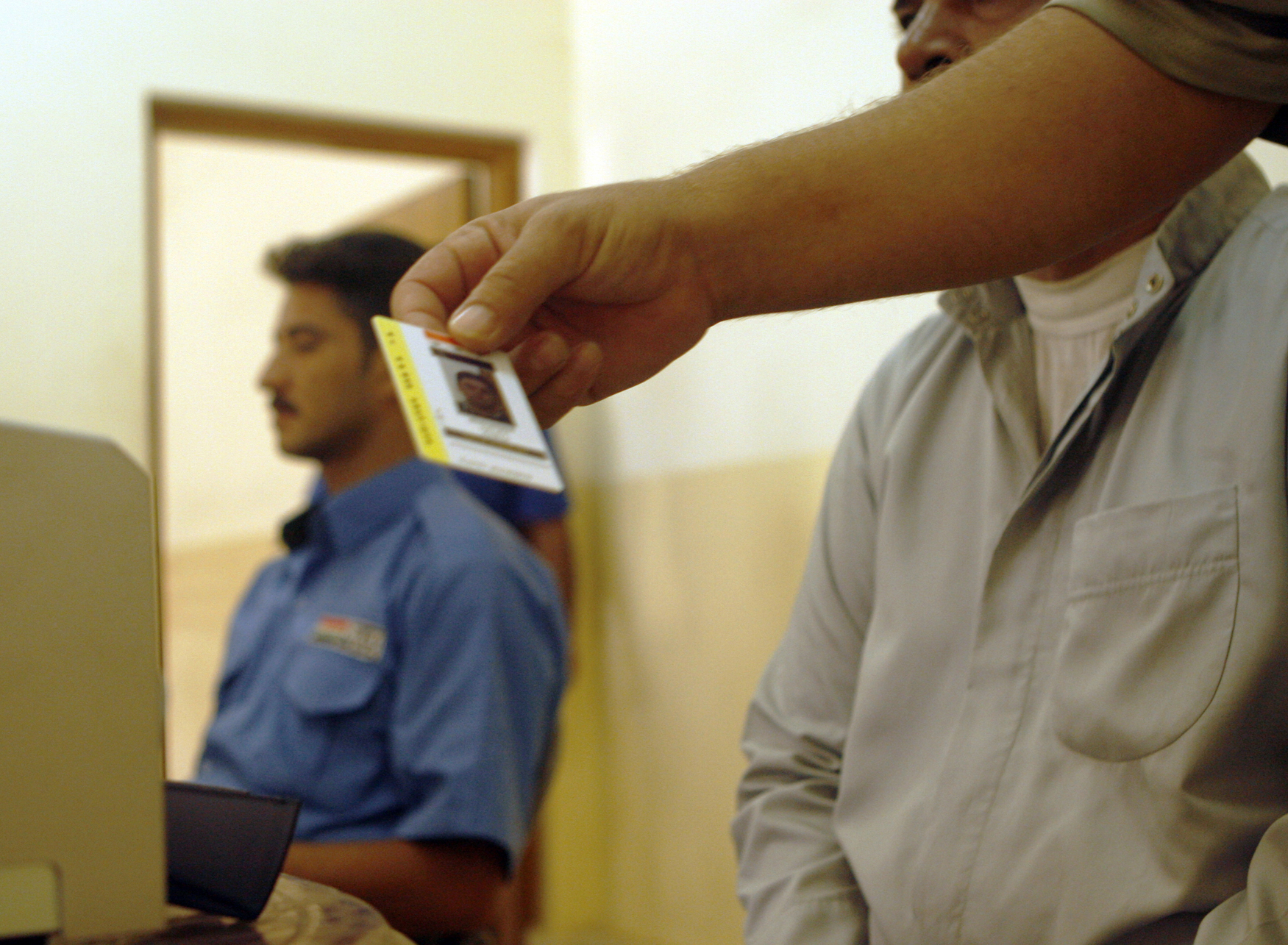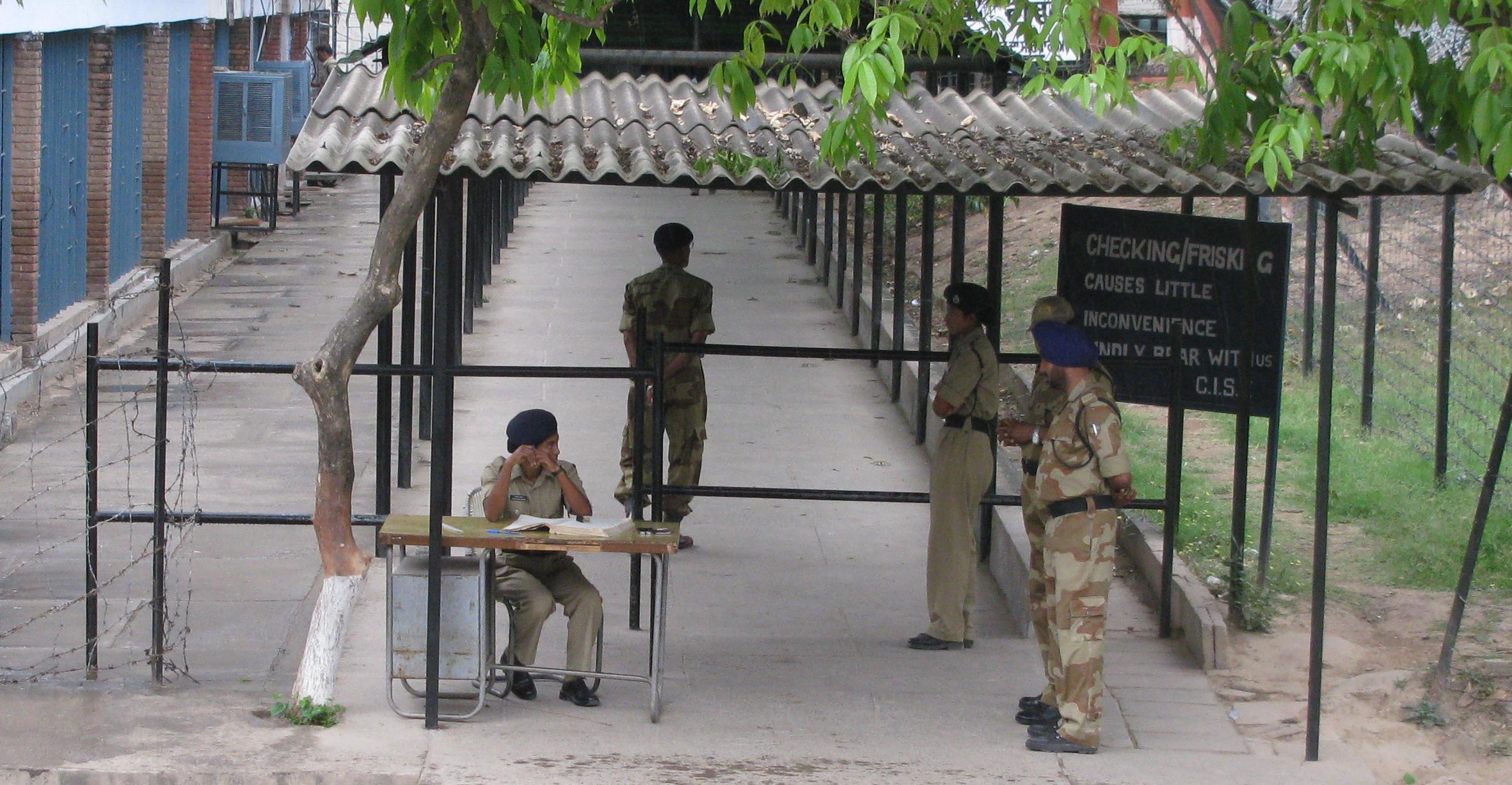Measure type: Screening
Screening is the measure of reducing risk by testing all traffic entering and/or exiting a certain area or object on criteria to determine their right to do so.
Description
Instead of seeking to exclude potential perpetrators (as in access control), this set of tactics seeks to increase the likelihood of detecting persons who are not in conformity with entry requirements (entry screening) or exit requirements (such as detecting the attempted removal of objects that should not be removed from protected areas).
Examples
Screening measures can take a wide range of form, depending on the access/exit criteria they intend to test:
- Closed-circuit TV (screening for for example hidden objects)
- Body searches (testing for hidden objects)
- Metal detectors (testing for metal objects)
- Vibration detectors or motion detectors (testing for entry at forbidden times or locations)
- Library book tags (testing for theft)
- Requirement show identification
- Electronic badges for trusted personnel
- Vignette on the car window (testing for paid road tax)
- Camera control (with license plate recognition), e.g. for parking garages or for congestion charging such as in London[1]
Effectiveness
Security issues where this measure can be effective and influenced by the urban planner, are:
| Financial gain | Boredom or compulsive behaviour | Impulse | Conflict in beliefs |
|---|---|---|---|
| Burglary{{#info:Burglary is the crime of illicitly entering a building with the intent to commit an offence, particularly (but not limited to) theft.}} | Physical assault{{#info:Assault, is a crime which involves causing a victim to fear or to experience any type of violence, except for sexual violence}} | Destruction by riots{{#info:Destruction by riots is the act of vandalism of property by organised groups for a shared rational or rationalised reason.}} | Mass killing{{#info:Mass killing is the crime of purposely causing harm or death to a group of (unknown) people in order to make a statement or to influence the public opinion. This threat is exerted out of wilful action by fanatics: terrorists or criminal activists.}} |
| Ram-raiding{{#info:Ram raid is a particular technique for burglars to gain access to primarily commercial premises, by means of driving -usually stolen- vehicles into locked or closed entrances, exits or windows.}} | Sexual assault{{#info:Sexual assault is assault of a sexual nature on another person, or any sexual act committed without consent}} | Destruction of property by fanatics{{#info:Destruction by fanatics is the crime of purposely causing damage in order to make a statement or to influence the public opinion.}} | |
| Pickpocketing{{#info:Pickpocketing is a form of theft that involves the stealing of valuables from a victim without their noticing the theft at the time. }} | Vandalism{{#info:Vandalism is the act of wilful or malicious destruction, injury, disfigurement, or defacement of property without the consent of the owner or person having custody or control.}} | ||
| Robbery{{#info:Robbery is the crime of taking or attempting to take something of value by force or threat of force or by putting the victim in fear. It is used her exclusively for acts committed to individual persons.}} | Graffiti{{#info:Grafitti is the defacement of property by means of writing or drawings scribbled, scratched, or sprayed on a surface in a public place without the consent of the owner or person having custody or control. }} | ||
| Raid{{#info:Raid is the crime of taking or attempting to take something of value from a commercial venue by force or threat of force or by putting the victim in fear.}} | Antisocial Behaviour{{#info:Antisocial behaviour is an accumulation category of relatively small crimes that highly influence the security perception of citizens. }} | ||
| Vehicle theft{{#info:Vehicle theft is the crime of theft, or attempt of theft of or from a motor vehicle (automobile, truck, bus, motorcycle, etc.).}} |
Considerations
General considerations
For screening to work in general, a detection method needs to exist that is able to, and effective in, testing the access or exit criteria. The test needs to be designed in conformity to the mobility requirements of the access or exit, that is: it should allow the required flows.
For screening to be deployed in an urban environment, the measure has to be in concordance with the environment it is deployed in. Some types of screening would disrupt traffic flows to an extent that would cause problems: an identity check in a metro station would, because of the high flows of traffic, be very problematic. A body search would normally not be allowed on account of it being very invasive to the privacy of a person, but in certain circumstances - especially when specific indications exist a person might form a significant threat - it might be allowed.
Urban planning considerations
While many forms of screening are not suitable for use in public space due to the potential disruption and time delays it could cause, other forms of natural screening can be promoted through urban design techniques. For example, a clear demarcation of public and private space, through the use of different boundary or surface treatments or the use of fencing, should provide for strong territorial definition. When clear ownership of space is evident, it makes it easier for residents to ‘screen’ for people who do not have legitimate reason to be there.
Safety/security considerations
Intensive forms of screening can raise the prominence of an object, which can raise the attractiveness of the object for fanatics.
Social considerations
From the social point of view, screening as a measure to increase resilience should consider that security mainly refers to the people and society, and that technical solutions are not effective without the acceptance and participation of the public. This acceptance is, among other things, rooted in security cultures.
Practical addressing of social aspects and aspects of security culture in planning for measures (such as screening) can best be accomplished by appropriately involving citizens, based on a set of introduced methods of citizen participation as compiled by VITRUV. Ideally, planning for the measure of screening should include tests of usability of respective resilience-enhanced built infrastructure in relevant social contexts. An example of a practical method to use is the safety audit, which focuses on context-specific solutions.
Economic considerations
Screening measures (see the case example below) intend to deter crime and terrorism, mitigating the negative socio-economic impact of crime and terrorism. There are, however, costs involved with the improvement of urban security, also referred to as the "Costs of Mitigation"[1]. These costs contain first of all direct investments in equipment, training and operational costs by private agents, companies/developers and the public authorities, exacting economic cost/impact. Secondly, the mitigation effort generates various types of secondary effects for example in terms of delays, inconveniences, and changes in the business environment.
Whether these primary and secondary costs are making sense from an economic point of view depends on many factors, and can be answered by two distinct sets of questions (see also the flow chart of an economic assessment):
- Are the envisioned security measures cost effective from a socio-economic point of view, or are there better alternatives?
- Which specific agents (individuals, companies, sectors, authorities) are affected by the security measures and to which extend? How do the envisioned measures alter the behaviour of these agents, and, of course, the behaviour of criminals/terrorists?
Case example: A cost-benefit analysis of screening at checkpoints:
In economic terms, checkpoints help to apprehend persons in violation of laws and confiscate contraband (such as smuggling goods). The benefits of checkpoints can be quantified in terms of the number of apprehensions per patrol agent. Some detailed studies suggest that checkpoints have a positive benefit-cost ratio. Take for example a study on the community sobriety checkpoint program estimated benefits from the National Highway Traffic safety Administration (NHTSA). This report states that for every $1 spent on sobriety checkpoint program the community saves more than $6, including $1.30 of insurer costs(Miller et al., 1998).[2]. Nevertheless, screening of persons also generates indirect costs that are generally hard to measure. Think of effects such as delays (for both private persons as commercial transportation companies), inconvenience for travelers, and the quality of life for local residents. On top of that, checkpoints may possibly also raise concerns about the overall safety of the region, influencing economic activities such as tourism and local business customer ship.
Economic tools such as the social cost-benefit analysis (first question) and economic impact study (second question) can help decision makers to answer these questions and to prevent wasteful expenditures on security (of course in collaboration with insights from criminology, sociology, etc.).
Mobility considerations
Mobility considerations for screening are that the screening should be performed quickly as not to disrupt the traffic flow. As given above, examples of screening in a mobility environment are a vignette on the car window (road tax), camera control (with license plate recognition), barriers (e.g. to control a private parking or area), toll booths or security/entrance checks at airports.
Ethics considerations
Ethics aspects of screening depend on the differences in the security and rights traditions of different countries. Prevention management, and mitigation strategies may be seen to involve restriction of fundamental rights (e.g. movement; privacy). As a general guideline, the screening measure should aim to test for only the access/exit criteria and avoid gathering any other information. This principal ensures a minimal breach to the personal privacy.
In general, pinpointing specific ethics aspects in resilience-enhancing measures needs to consider, among other things, citizen security cultures and citizens' personal concerns. There are no ethics considerations that can be planned or implemented without prior identification and addressing of citizens' perceptions. To support this, VITRUV offers a commented list of methods to determine ethics aspects in relevant urban planning.
Legal considerations
Main legal considerations as they relate to screening include data protection; identification of people and how this could infringe personal rights; legal permission or restriction (such as anti-discrimination) to apply criteria; legal aspects of mass data storage; data protection; and legal admissibility of forcing people to identify themselves.
VITRUV offers a summary checklist and a list of methods to assess legal aspects in resilience-enhancing urban planning.
Footnotes and references
- ↑ Source: Rose, A & S. Chatterjee (2011). Benefits and Costs of Counter-Terrorism Security Measures in Urban Areas. Research sponsor: Department of Homeland Security: 6-7.
- ↑ Miller, T., M. Galbraith, and B Lawrence. (1998). Costs and Benefits of a Community Sobriety Checkpoint Program. Journal of Studies on Alcohol and Drugs, 59(4), 462-468. In: Rose, A. & S. Chatterjee (2011). Benefits and Costs of Counter-Terrorism Security Measures in Urban Areas. Research sponsor: Department of Homeland Security, p.10


